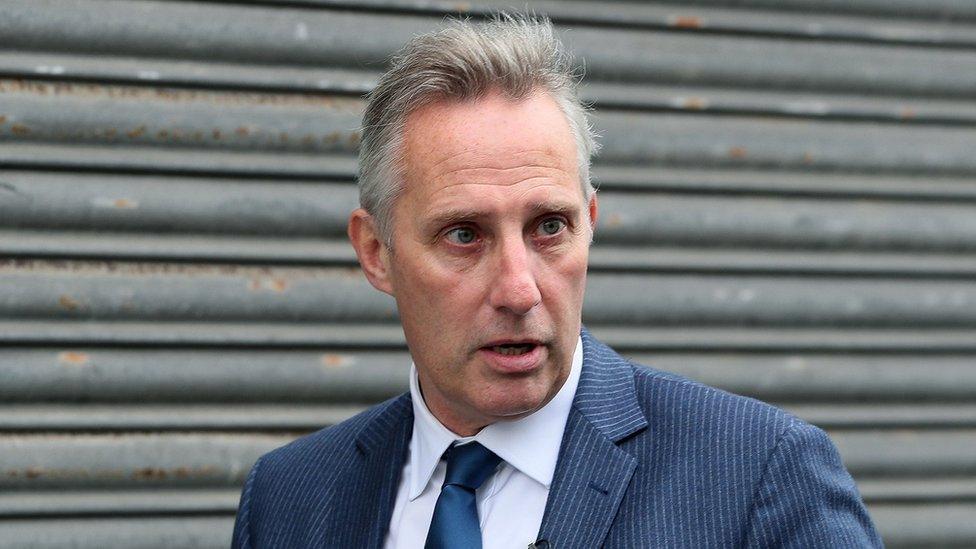Boris Johnson: What do Westminster resignations mean for Stormont return?
- Published
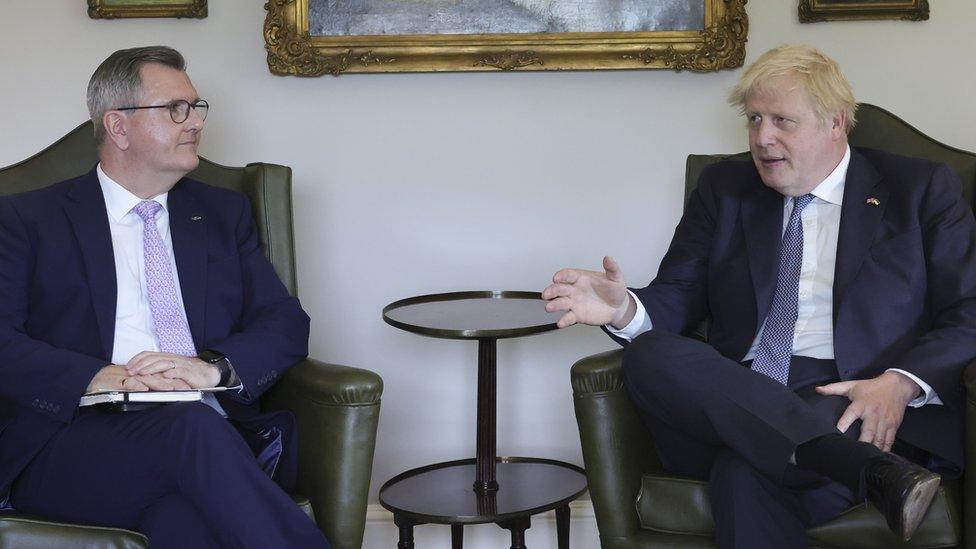
The pressure is ramping up on Prime Minister Boris Johnson and that could have a big impact on Northern Ireland's political leaders, including Sir Jeffrey Donaldson
It was almost game, set and match in favour of Boris Johnson's opponents but in the end he survived - for now.
The prime minister rallied back from the brink and is now preparing for yet another government reset with a reshuffled front bench.
But what could it mean for the prospect of a Stormont reset?
A prime minister clinging to power injects even more uncertainty into the power vacuum in Northern Ireland.
Expect the government to be consumed by a re-energised Tory revolt with two new recruits to the rebel ranks.
Yet another confidence vote in the prime minister seems inevitable.
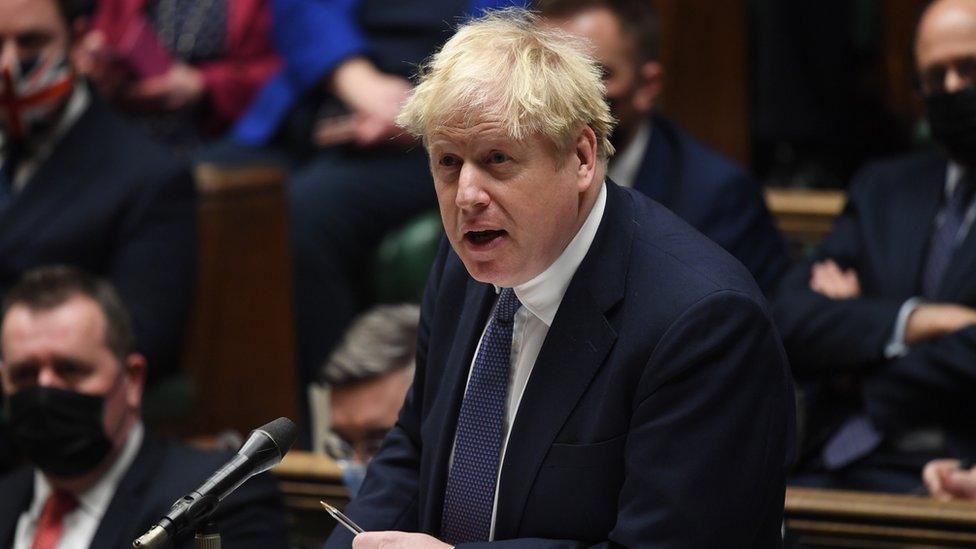
Another confidence vote in the Prime Minister seems inevitable.
That means Stormont's crisis will get relegated even further down the political pecking order.
The prospect of resolving the protocol problems also now seem more remote.
The EU will be less likely to negotiate solutions with a prime minister who may not be around to see any deal implemented.
Expect the stand off between London and Brussels to continue.
The government's controversial legislation to override parts of the protocol will also continue on its path through Westminster.
It is due back in the Commons chamber next week when MPs will debate and vote on possible amendments.
Some rebel Tory MPs may be tempted to use the votes to further damage the prime minister.
But they will be warned, by the DUP and others, that tampering with the bill will kill off any return to power sharing in Northern Ireland.
A much bigger battle for DUP leader Sir Jeffrey Donaldson will come in the autumn when the bill is expected to reach the Lords.
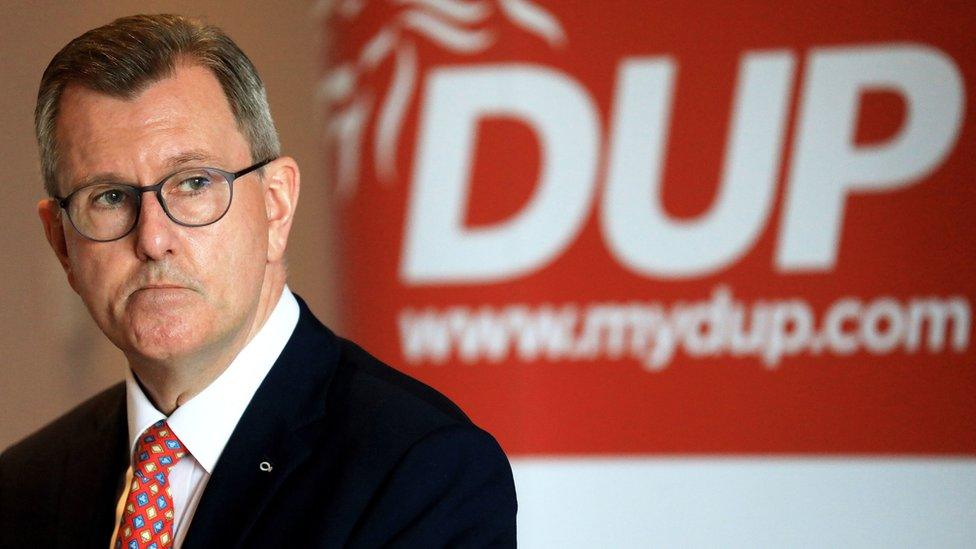
Sir Jeffrey Donaldson had been assured that the prime minister would invoke the Parliament Act to ensure peers could not frustrate and delay the bill.
The DUP leader has been given an assurance from Boris Johnson that he will invoke the Parliament Act to ensure peers can't frustrate and delay the bill.
But will the prime minister still be in office then to stand by that pledge?
On the plus side for the DUP, a key critic of the government's protocol stand off with the EU has gone.
Former chancellor Rishi Sunak constantly warned against poking the Brussels bear in the middle of a financial crisis and risking a trade war.
His departure removes that resistance.
But if we do end up in a Conservative leadership contest, the former chancellor could be back on the front bench.
The man who replaced him as chancellor is already starting to change the narrative talking up the prospect of tax cuts.
That may play well with the electorate but Boris Johnson's fate will rest with his backbenchers, who are poised for a rematch in yet another confidence vote
- Published6 July 2022
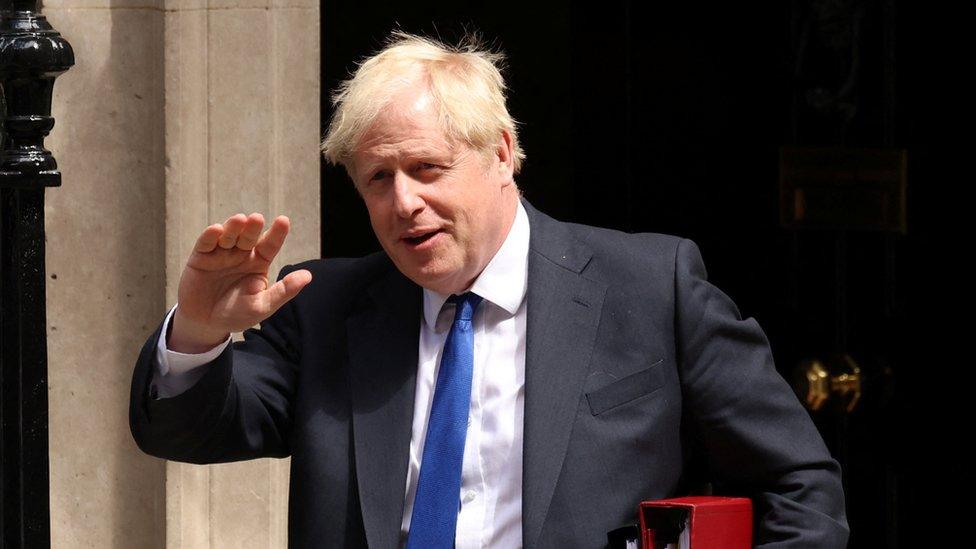
- Published6 July 2022
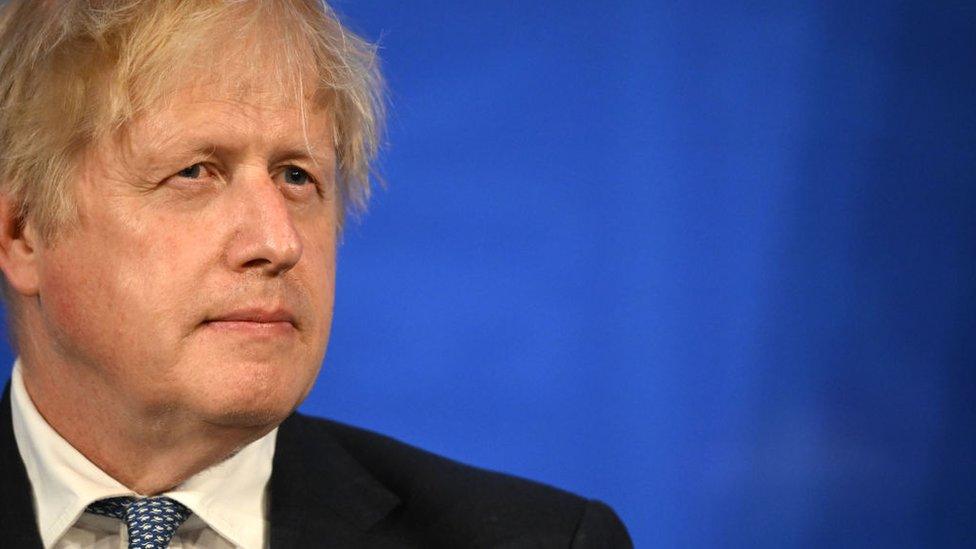
- Published15 June 2022
